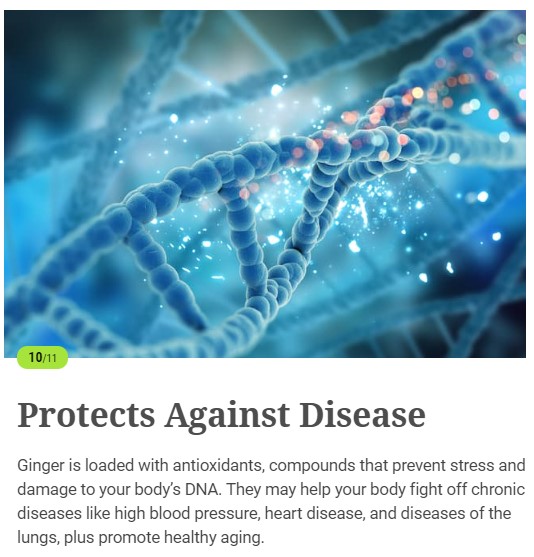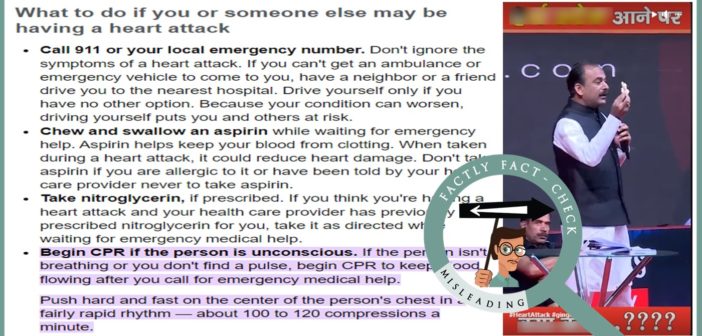A video is being widely shared on social media platforms claiming that consuming ginger immediately after a heart attack relieves the patient by removing the blockage in heart. Let’s verify the claim made in the post.

Claim: Consuming ginger immediately after a heart attack relieves the patient by removing the blockage in heart.
Fact: According to research published on National Library of Medicine and WebMD, ginger is effective in maintaining heart health. However, there is no evidence to suggest that consumption of ginger immediately after a heart attack saves the patient by immediately removing the heart blockage. Hence the claim made in the post is MISEADING.
According to Centers for Disease control and Prevention (CDC), heart attack, also called a myocardial infarction, happens when a part of the heart muscle doesn’t get enough blood. The more time that passes without treatment to restore blood flow, the greater the damage to the heart muscle. Coronary Artery Disease (CAD) is the main cause of heart attack. A less common cause is a severe spasm, or sudden contraction, of a coronary artery that can stop blood flow to the heart muscle.
We then searched for medical evidence, research, and publications regarding the effectiveness of ginger in treatment of heart attack. According to a research paper published on National Library of Medicine’s website,
“Several herbal medicines were used to develop new drugs with more potency and minor side effects. Amongst natural entities, ginger is used as a traditional medicine in several diseases. The crude extract, along with related pungent active constituents, is mostly attributed to heart health. The cardioprotective effects of ginger are contributed to its cardiotonic, anti- hypertensive, anti-hyperlipidaemia, and anti-platelet effects.”
Also, as per WebMD, ginger helps the body to fight off diseases like high blood pleasure and heart disease and lowers cholesterol.

However, there is no evidence to suggest that consumption of ginger immediately after a heart attack saves the person by removing heart blockage instantly.
Mayo clinic recommends the following steps to follow during a heart attack:
- Call emergency number for ambulance or ask someone to take you to hospital
- Chew and swallow Aspirin while waiting for emergency help. Aspirin helps keep your blood from clotting. When taken during a heart attack, it could reduce heart damage. Don’t take aspirin if you are allergic to it or have been told by your health care provider never to take aspirin
- Take nitro-glycerine, if prescribed. If you think you’re having a heart attack and your health care provider has previously prescribed nitro-glycerine for you, take it as directed while waiting for emergency medical help.
- Begin CPR if the person is unconscious.
- If an automated external defibrillator (AED) is immediately available and the person is unconscious, follow the device instructions for using
To know more about heart attack treatments and medications, visit this page.
To sum it up, even though ginger is effective in maintaining heart health, there is no evidence to suggest that consumption of ginger immediately after a heart attack saves the patient by immediately removing the heart blockage.



